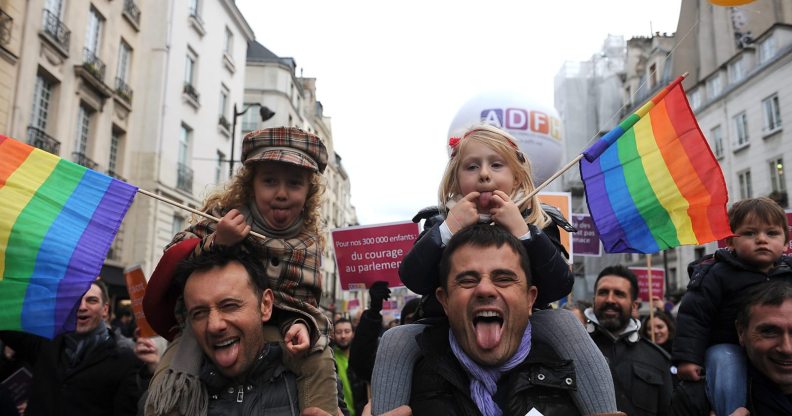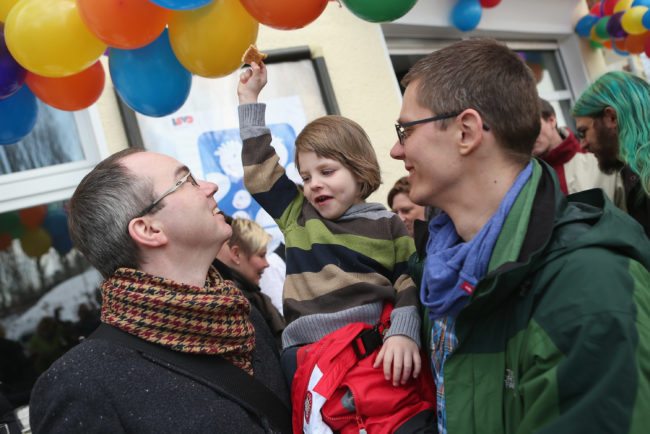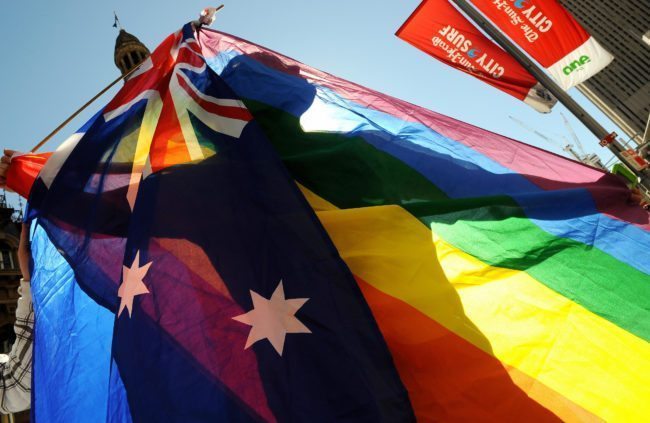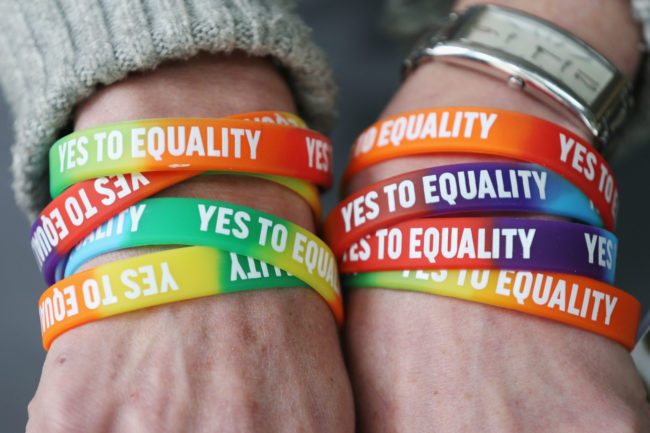Main threat to children of same-sex parents is discrimination, report reveals

(Getty)
A comprehensive study has found that the children of same-sex parents do just as well as the children of opposite sex parents.
The study, published in the Medical Journal of Australia, dismantles a key argument of Australia’s anti-marriage equality campaign that children require both a mother and a father to succeed.
The review of three decades of peer-reviewed research by Melbourne Children’s, a paediatric teaching hospital and research institute, found children raised in same-sex-parented families did as well emotionally, socially and educationally as their peers.
However the study did unearth that children of same-sex couples are damaged by discrimination from peers and the media.

(Getty)
The report’s authors hope it will curb misinformation about the effects of same-sex parenting.
The publication coincides with Australia’s same-sex marriage postal survey in which ‘no’ campaigners have claimed children are damaged by the acceptance of gay relationships.
“The findings of these reviews reflect a broader consensus within the fields of family studies and psychology.
“It is family processes – parenting quality, parental wellbeing, the quality of and satisfaction with relationships within the family) – rather than family structures that make a more meaningful difference to children’s wellbeing and positive development,” the researchers said.
It did, however, find that young LGBT people experienced much higher rates of psychological distress in Australia than their heterosexual and cisgender peers.

Prof Frank Oberklaid, author of the study, said: “Young LGBTIQ+ people are much more likely to experience poor mental health, self-harm and suicide than other young people.
“Sadly, this is largely attributed to the harassment, stigma and discrimination they and other LGBTIQ+ individuals and communities face in our society,” Oberklaid said.
The research also argued that a number of other studies on the issue have been unreliable.
The widely cited Regnerus study compared adults raised by a gay or lesbian parent in any family configuration with adults who were raised in stable, heterosexual, two-parent family environments, which may have distorted its findings.
The professor also argued that the marriage equality debate itself has damaged the health of young LGBT people.
“The negative and discriminatory rhetoric of the current marriage equality debate is damaging the most vulnerable members of our community – children and adolescents.
“It’s essential that we recognise the potential for the debate about marriage equality to cause harm for our children and young people.”

Prof Oberklaid argued that there is evidence for improved wellbeing among LGBT youth in countries that have legalised same-sex marriage.
“As part of the medical community we feel a duty of care to all groups in our society, particularly to those who are vulnerable.
“Our duty extends to making sure that accurate, objective interpretations of the best available evidence are available and inaccuracies are corrected in an effort to reduce the destructiveness of public debate,” Oberklaid said.

